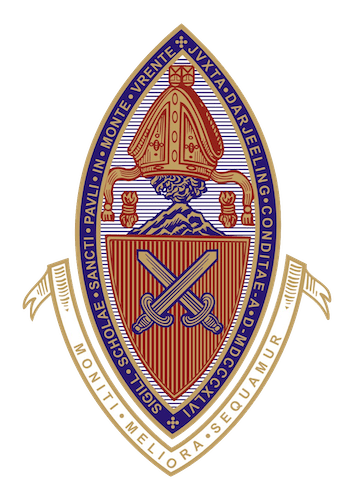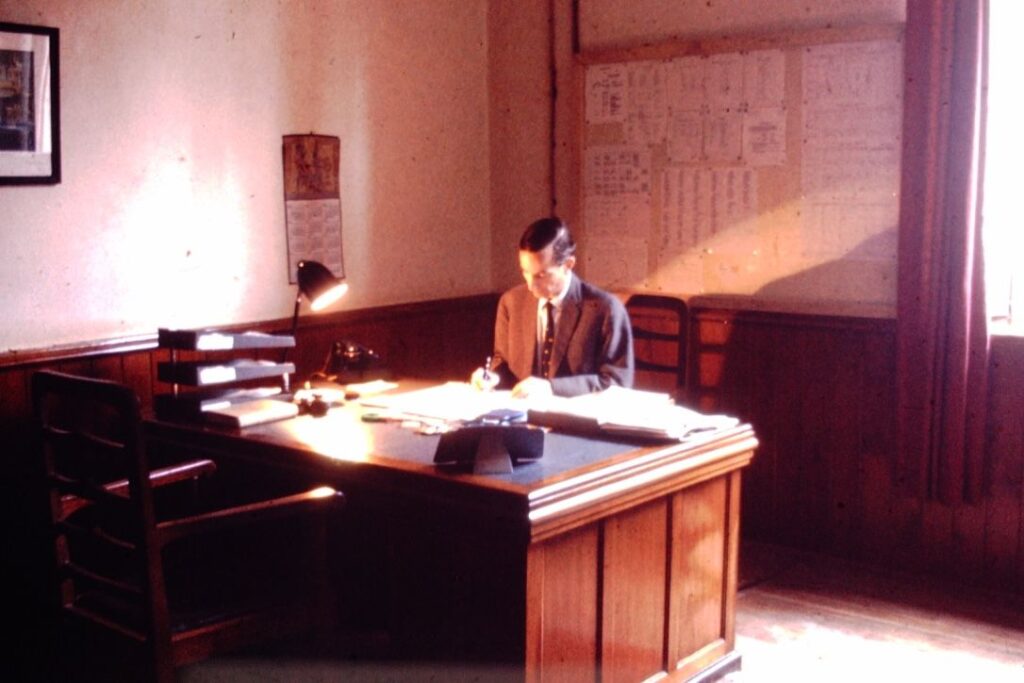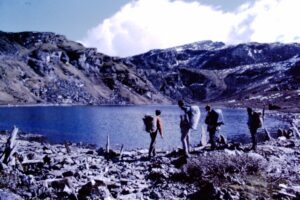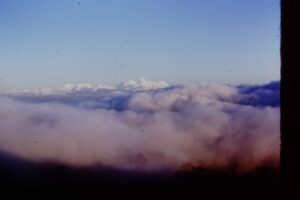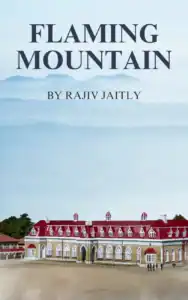9th July 1926 – 21st June 2020
Rector of St. Paul’s School, Darjeeling
1964 – 1972
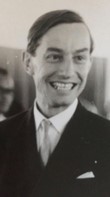
David Gibbs was born in England in 1926. He was educated at Gayhurst (Preparatory) School which his father ran from 1927 for 42 years. The school is in Gerrard’s Cross in Buckinghamshire and continues to flourish to this day. From there Mr. Gibbs went to Rugby School and then got an Exhibition (scholarship) to Clare College, Cambridge, to study Engineering. At Cambridge he played rugger, as hooker, for Cambridge University as well as for Clare College and the Harlequins Rugby Football Club.
After Cambridge Mr. Gibbs then did his National Service and was posted with the Royal Engineers to Tripoli in Libya. It was here that he met his wife-to-be, Sally (Dobbs), who was out there staying with the Chief Administrator of Tripolitania. They married in Ireland in 1952.
On his return from Tripoli and National Service he joined an engineering firm in London – Binnie, Deacon and Gourley – but soon after, his father C.C.S Gibbs asked him to help him at Gayhurst School. He dutifully left his engineering career to do so and later moved on to Repton School in Derbyshire to teach Maths and Physics.
In 1964 Mr. Gibbs applied for Headships, sponsored by the British Council. These were overseas jobs in Peru, Laos, Fiji, Burma and India. Initially he was selected for the Burmese job in the Shan States, a two-day overland journey from Rangoon, but this did not materialise owing to civil war. He was then offered the post of Rector of St. Paul’s School in Darjeeling, India. David and Sally Gibbs, along with their three children – Lucinda(6), William(4) and Alexander(2) – set sail from Tilbury Docks in London on the P & O liner Orsova to Bombay – a three week journey through the Bay of Biscay into the Mediterranean and on through the Suez Canal – the start of a true adventure. They arrived at St. Paul’s in May 1964, having stopped in Bombay (staying with the Bishop) and Calcutta (at the Great Eastern Hotel).
The next nine years were for Mr. Gibbs and the family a very memorable and life-changing experience. In place of the rather old-fashioned cadet force Mr. Gibbs introduced the “Pioneers” which involved camping and bivouacking, metalwork, rock-climbing, trekking (learning to use compasses etc.) and other outdoor activities such as building fences.
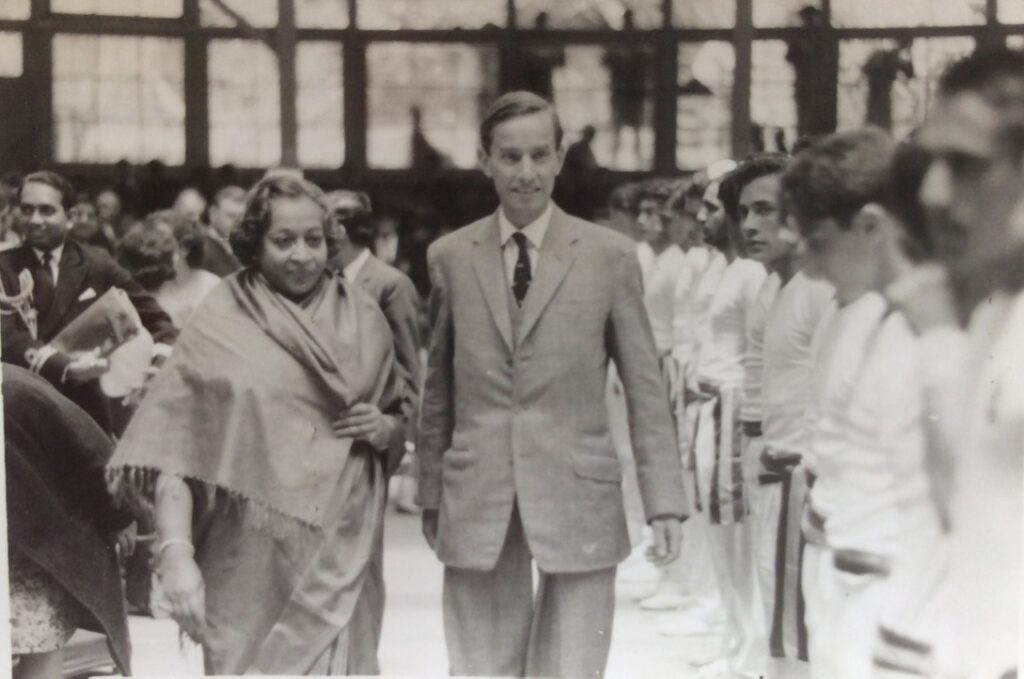
Some boys even remember being encouraged to help with white-washing certain areas of the school or constructing beds in the carpentry room, for Mr. Gibbs was very hands-on with the maintenance of the buildings and went around regularly with the Estate Manager inspecting the school and grounds. He introduced boxing in 1968 and shooting (with .22 rifles) on the range above the school field. Trekking in the Himalayan foothills was encouraged, particularly for those unable to return home to their families in the holidays, and many Old Paulites remember these exciting times. During his time drama and music flourished, including folk-dance items and Gilbert and Sullivan operettas such as Trial by Jury (staff) and Ruddigore by the school. Mr. Gibbs was instrumental in John Billington (then on the staff) moving to Repton in 1965, and in inviting various family and friends from England to teach or work at St.Paul’s. These included Roy and Shirley French (and their two boys), Patricia Blackley, Lucinda Turner (and her son Jolyon) and Mr. Gibbs’s mother who spent three months in Darjeeling. During his tenure at St. Paul’s Mr. Gibbs was supported by a wonderful staff, including N.K.S.Rao as Senior Master and Chris Macdonald as Head of the Junior School.
A note from an Old Paulite concerning “baths” serves to highlight the changes:
“The biggest change when Mr. Gibbs arrived related to the availability of hot water for baths. Before that we had tub baths scheduled for twice a week, one at 5 a.m. and the other in the afternoon. In the early session the water was too hot to use directly in the tub, but when you added cold water it invariably became too cold! So virtually no boy actually had a bath in the morning session – we just stirred the water around and went back to bed. When Mr. Gibbs arrived the first thing he did was to install wood-fired water-boilers for the dormitories. Each afternoon we could have showers with comfortably hot water! It was an absolute delight after sports, and this also eliminated the 5 a.m. sessions. We were all overjoyed – and stayed much cleaner to boot!”
One of the many highlights for David and Sally Gibbs in Darjeeling was going to the Coronation of the 12th Chogyal of Sikkim, Palden Thondup Namgyal, in 1965. Returning from the celebrations their driver managed to go over the edge of the road – but fortunately it was a mere 30-foot drop instead of the usual 100 feet so they survived to tell the tale.
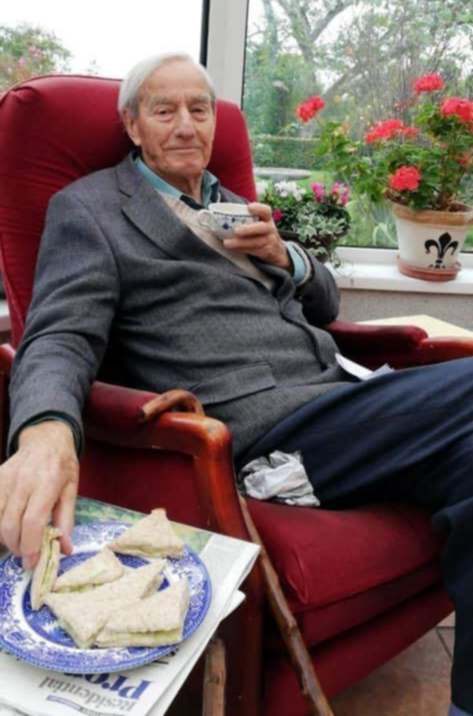
There were challenges too, such as the strike among the domestic staff. Some of the senior boys and Mr. Gibbs broke through the line to the Dining Room and Mr. Gibbs got hit on the head with an umbrella by the head Mali. All was forgiven in the end. Other not-to-be-forgotten episodes were concerns over the Chinese threats around the Nathu-la (pass) in 1965, and the war in East Pakistan in 1971 that resulted in the creation of Bangladesh when St. Paul’s and other schools in Darjeeling sent senior boys down to the border to help in the refugee camps at Islampore.
The British Council withdrew their sponsorship in 1972 and Mr. Gibbs had to make the decision whether he wished to remain in India under the Indian education system or to return to the UK to continue teaching there. He had six months to make the decision.
With a heavy heart and considering many factors he decided to return to England. Distance prevented him getting interviews for Headships but he accepted a job at his old school, Rugby, to teach Maths and Physics. It was a huge change from the hills of Darjeeling to the red brick of midlands England, and a great challenge for all the family.
In 1973 Mr. David Gibbs was awarded an OBE (Order of the British Empire) for his services to education in India.
In 1974 Mr. Gibbs was interviewed for, and got, the job as Warden (Headmaster) of St. Columba’s College in Dublin, Ireland. He remained there until 1988 when his health dictated he retire. He and Sally Gibbs moved to Bellmount, near Cullahill, in the countryside of Laois, which remains their home. His retirement years saw his engineering and DIY skills come to the fore as he worked on restoring the period house they had bought. He also spent time farming in a small way on their 25 acres of land – keeping cattle, growing hay or making silage, and growing vegetables and keeping bees. He also continued with his playing of the French horn with the Dublin Orchestral Players. His concern for animal welfare led him to work with the Irish Society for the Prevention of Cruelty to Animals, both in Dublin and locally in Laois. Latterly, when managing the land became too much for him to do on his own, he let the land to a local farmer who continues to graze his cattle on it.
Till his last days, Mr. Gibbs continued to talk about the wonderful times spent St. Paul’s School in Darjeeling, India, the friends made there, and about his old boys, many of whom continued to keep in touch in one way or another. Whenever he had the opportunity he visited London and India where he met the Old Paulites who thronged to be with their beloved Rector. His last visit to India was in November 2018.
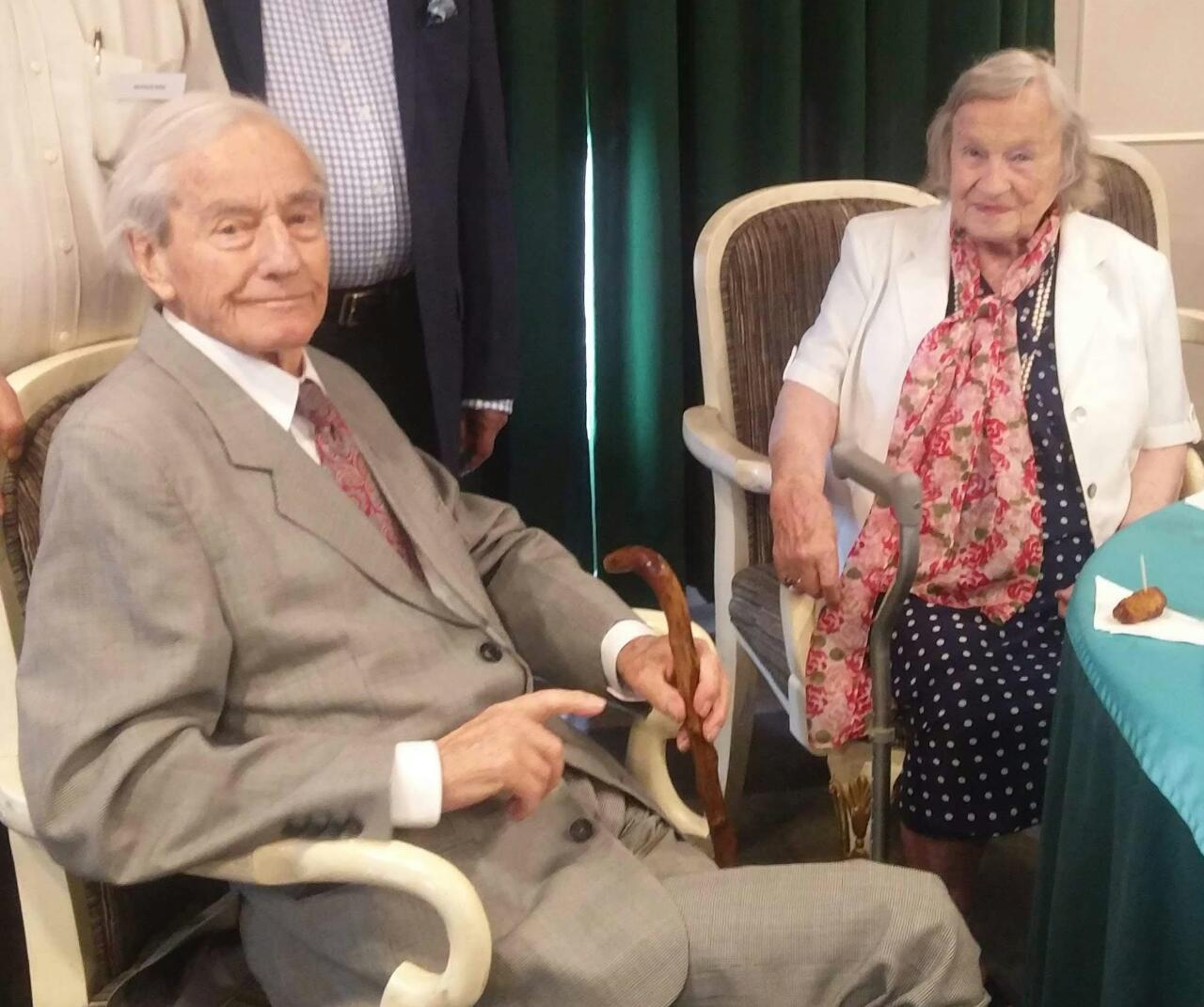
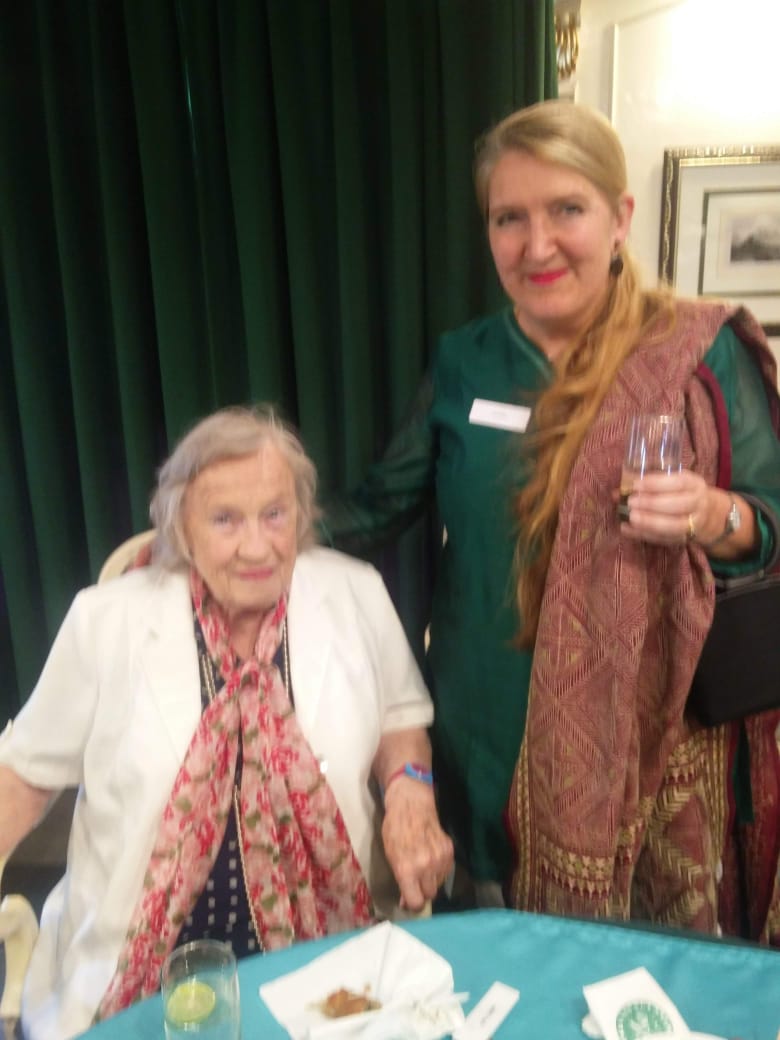
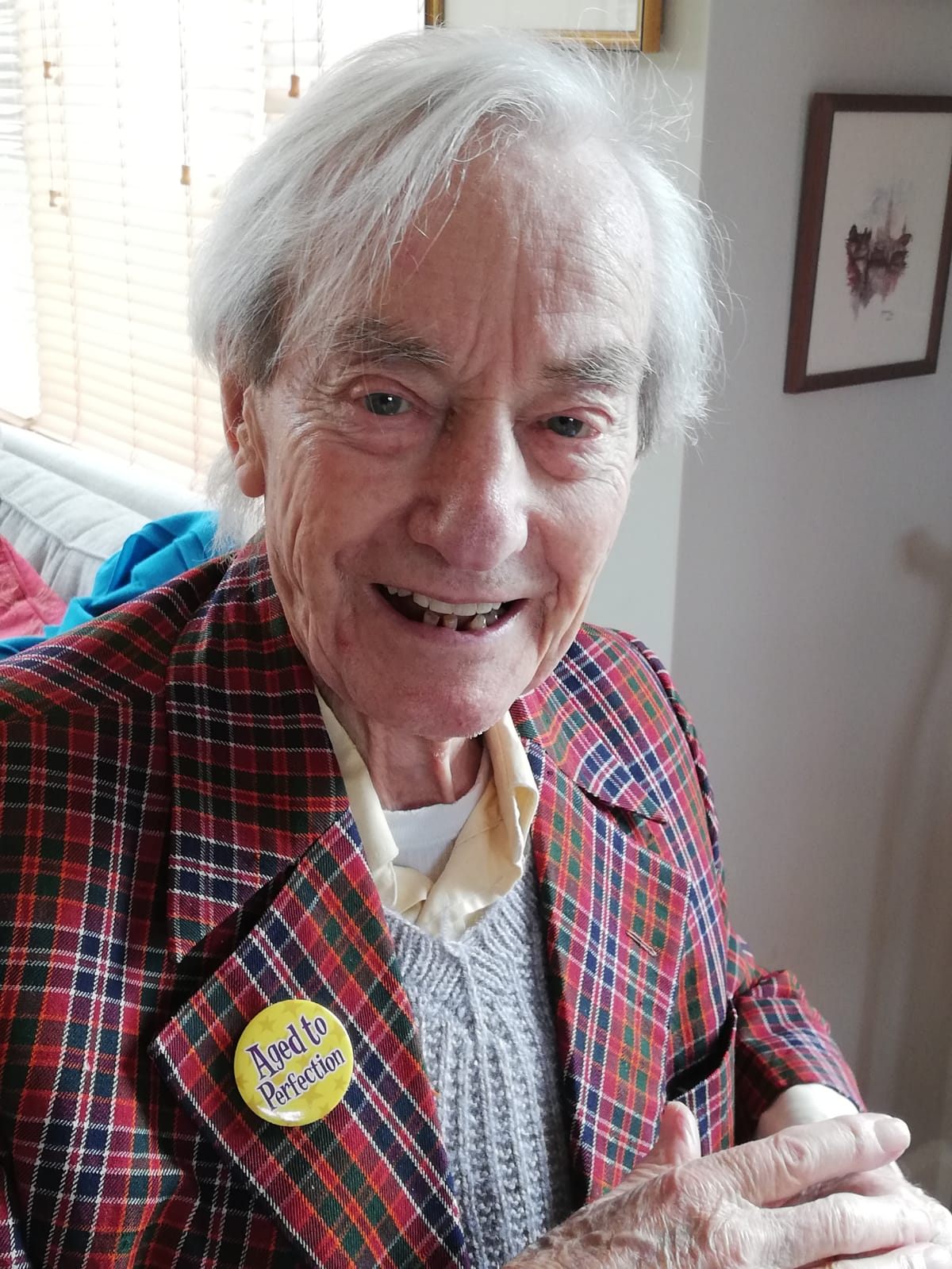
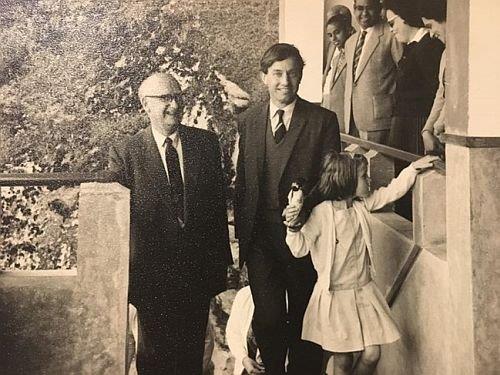
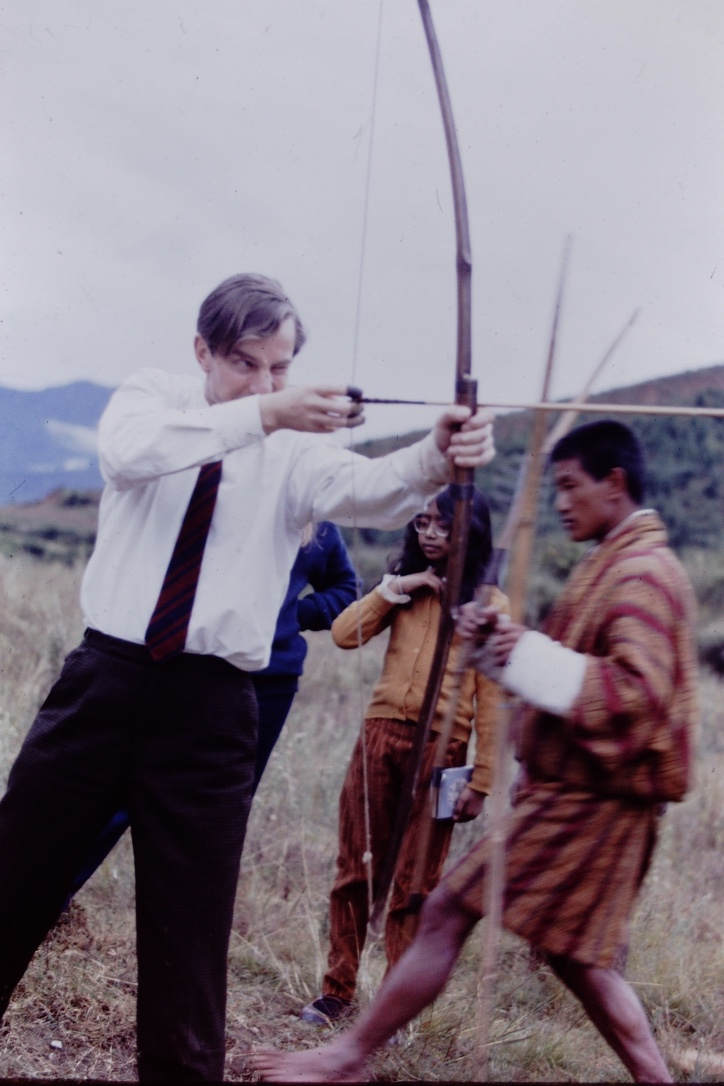
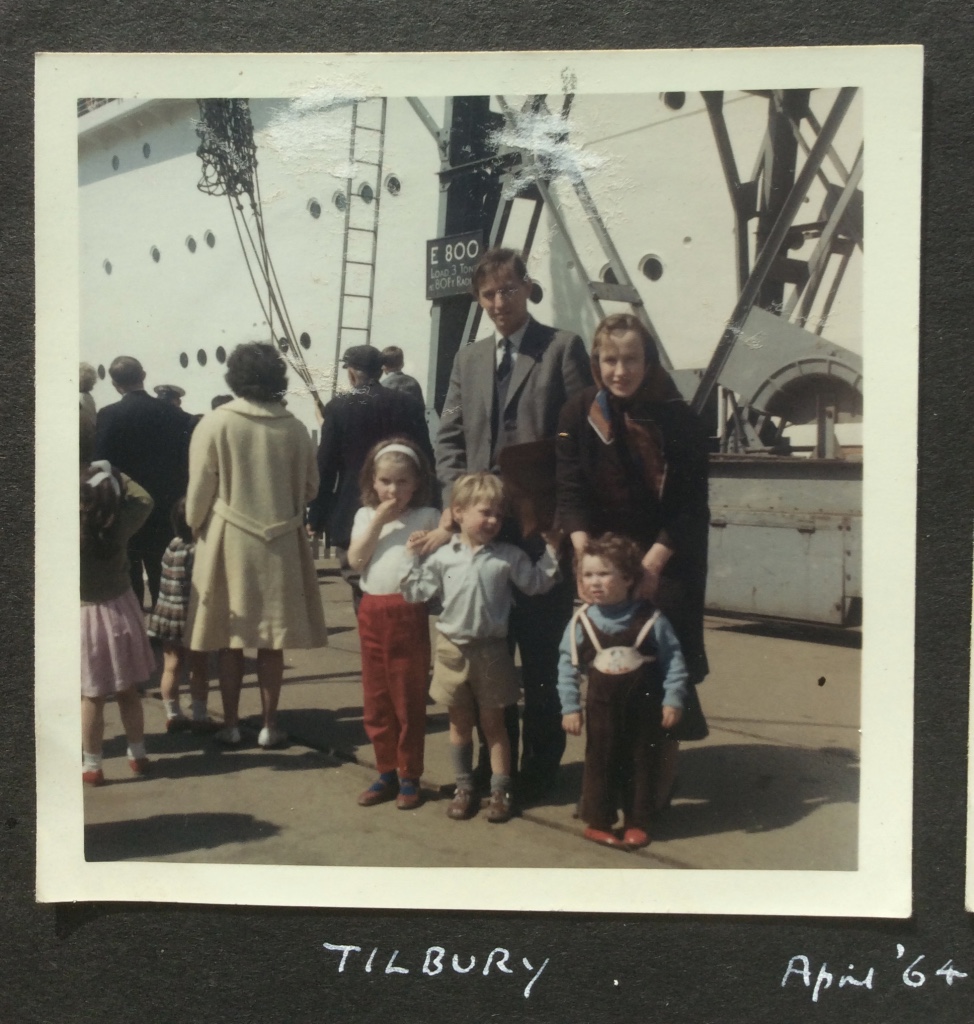
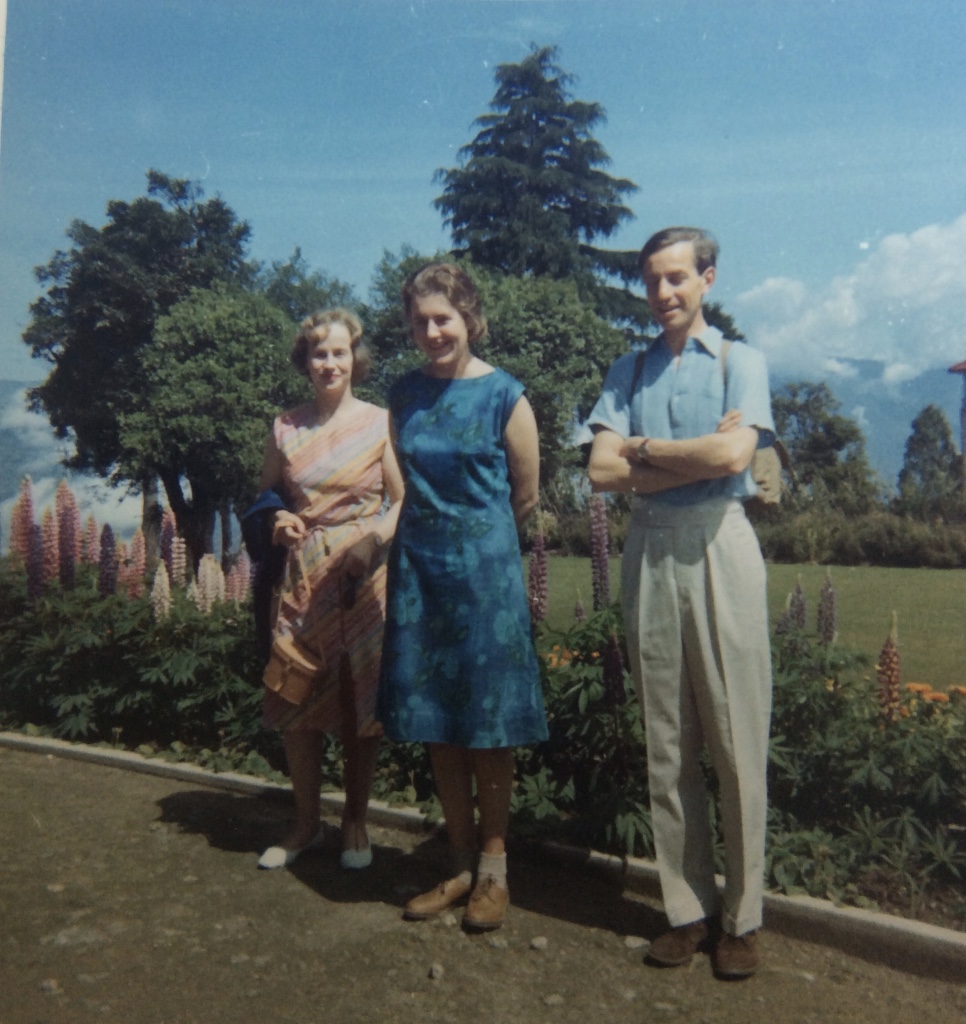
Mr. Gibbs passed away peacefully on Sunday, 21st June 2020 at 2 pm with his wife by his side in the nursing home where the staff had cared so kindly for him for almost a year and a half. As per his wishes he will be cremated, and this is arranged for 2.30 pm on Wednesday, 24th June 2020 at Mount Jerome Crematorium in Dublin. Only his immediate family will be present.
His passing away is a great loss to all his boys, particularly those who were in school during the Gibbs years. We have lost a great man, a devoted teacher who strengthened the school, developed a strong teaching staff – many of whom went on to become Head Masters, implemented robust outdoor activities, led by example, and above all inculcated a sense of self-dependence in all his students.
Farewell, Sir. You remain eternal as the snow-clad slopes of Kanchenjunga.
